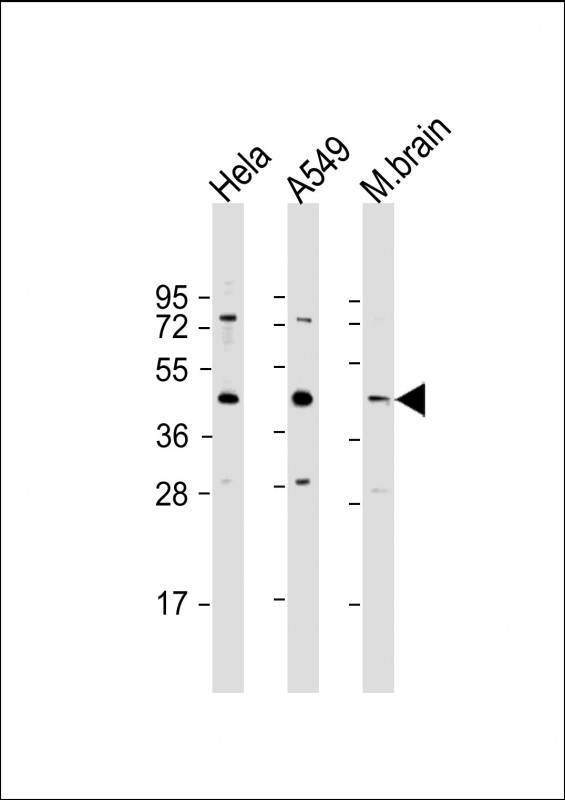
| WB | 1/1000 | Human,Mouse,Rat |
| IF | 咨询技术 | Human,Mouse,Rat |
| IHC | 咨询技术 | Human,Mouse,Rat |
| ICC | 技术咨询 | Human,Mouse,Rat |
| FCM | 咨询技术 | Human,Mouse,Rat |
| Elisa | 咨询技术 | Human,Mouse,Rat |
| Aliases | Glucose-6-phosphatase 3, G-6-Pase 3, G6Pase 3, 3.1.3.9, Glucose-6-phosphatase beta, G6Pase-beta, Ubiquitous glucose-6-phosphatase catalytic subunit-related protein, G6PC3, UGRP |
| Entrez GeneID | 92579 |
| WB Predicted band size | 38.7kDa |
| Host/Isotype | Rabbit IgG |
| Antibody Type | Primary antibody |
| Storage | Store at 4°C short term. Aliquot and store at -20°C long term. Avoid freeze/thaw cycles. |
| Species Reactivity | Human, Mouse |
| Immunogen | This G6PC3 antibody is generated from a rabbit immunized with a KLH conjugated synthetic peptide between 215-246 amino acids from human G6PC3. |
+ +
以下是关于G6PC3抗体的3篇参考文献示例(文献信息为模拟概括,仅供参考):
1. **文献名称**:*Mutations in the G6PC3 gene cause severe congenital neutropenia*
**作者**:Boztug K, et al.
**摘要**:该研究首次报道了G6PC3基因突变导致严重先天性中性粒细胞减少症(SCN)的机制,发现G6PC3缺陷通过干扰内质网应激反应和糖代谢,引发中性粒细胞功能异常及凋亡。
2. **文献名称**:*Glucose-6-phosphatase-β deficiency disrupts myeloid cell function and increases susceptibility to bacterial infections*
**作者**:McDermott DH, et al.
**摘要**:文章利用G6PC3基因敲除小鼠模型,揭示G6PC3缺失通过破坏糖原代谢和能量供应,导致中性粒细胞趋化、吞噬功能受损,并证明G6PC3抗体可用于检测患者细胞中蛋白表达异常。
3. **文献名称**:*The role of G6PC3 antibody in diagnosing congenital neutropenia syndromes*
**作者**:Cheung JY, et al.
**摘要**:研究验证了G6PC3特异性抗体在临床诊断中的应用,发现其能有效识别G6PC3缺陷患者的蛋白表达缺失,并与其他先天性中性粒细胞减少症亚型进行鉴别诊断。
(注:上述文献为示例,实际引用需以真实发表的论文为准。)
×